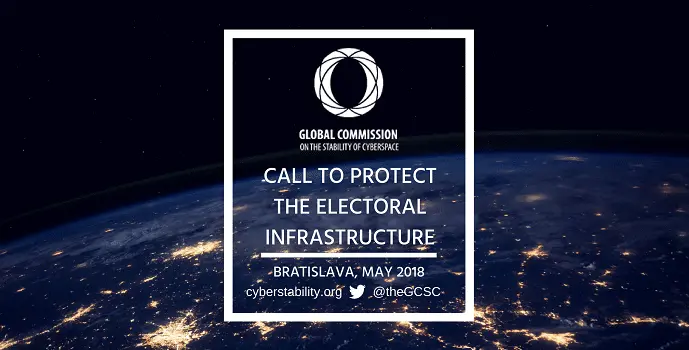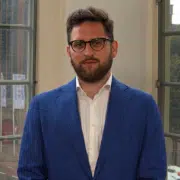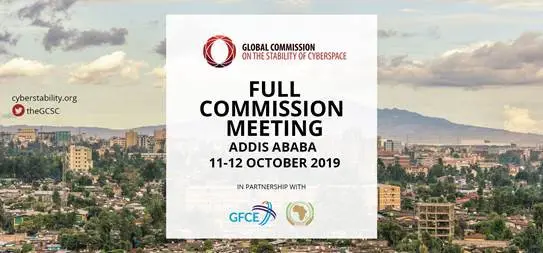Bratislava, May 24, 2018 – The Global Commission on the Stability of Cyberspace (GCSC) decided to advocate a prohibition on the disruption of elections through cyber attacks on the technical infrastructure that supports elections. Specifically, the proposed norm reads as follows:
“State and non-state actors should not pursue, support or allow cyber operations intended to disrupt the technical infrastructure essential to elections, referenda or plebiscites.”
An explanatory text describes the context and scope of the proposal.
The new norm was agreed at the third full Commission meeting on May 19-20 in Bratislava, held following the conclusion of GLOBSEC 2018. In addition to adopting the election norm, the Commissioners made progress on several additional norms that will include:
- Barring the insertion of vulnerabilities into essential cyberspace products and services;
- Advocating that governments actively consider disclosing software and hardware vulnerabilities to vendors; and
- Further defining the elements of the public core of the Internet.
It also planned work on several additional norms regarding private sector cybersecurity practices. The text of these norms is expected to be announced in September.
“The Commission is committed to ensuring the general availability and integrity of the Internet, that is, the stability of cyberspace. Our work today builds on our Call to Protect the Public Core of the Internet, which we issued in New Delhi last November,” said Marina Kaljurand, GCSC chair. “Confidence in electoral systems infrastructure is a fundamental component of public trust in cyberspace. Without such trust, the Internet cannot support the economic, political and social life of citizens around the world.”
To help inform its work, the Commission also held public hearings to hear reports on how norms have developed and evolved and discuss the long-term strategic vision for the international cybersecurity architecture. The hearings featured remarks by representatives of international organizations, including the United Nations Institute for Disarmament Research (UNIDIR), the United Nations Office for Disarmament Affairs (UNODA), and the Organization for Security and Co-operation in Europe (OSCE). Representatives of national governments, including the Netherlands, Finland, Mexico and Singapore, also spoke on this topic. Official representatives gave expressions of support for the Commission’s mission and work.
Renata Dwan, the director of UNIDIR, commented that “Digital cooperation and cybersecurity are issues that cannot be addressed by a single set of actors. The UN Secretary-General strongly supports a multistakeholder approach and dialogue that brings together governments, the private sector, civil society and academia in forums such as the Global Commission. While the First Committee of the General Assembly has an important mandate and should intensify its work, moving forward also requires involving other actors.”
This sentiment was strengthened by a message from Izumi Nakamitsu, Under-Secretary-General for Disarmament Affairs, who added “The important work to encourage and build capacity for the implementation of the norms recommended by the UN Group of Governmental Experts and other recommendations by all 193 UN Member States still continues. This task can only be achieved through the collaboration and cooperation of the entire international community. It requires the support of strong and committed leaders and partners, and I would therefore invite a deeper cooperation between GCSC and the United Nations.”
The Commission will next meet on June 19 for a special consultation meeting in Tel Aviv, Israel, during Israel’s Cyber Week. The fourth full Commission meeting will take place on September 19-20 in Singapore in the margins of the Singapore International Cyber Week.
For general inquiries, please contact Louk Faesen at loukfaesen@hcss.nl or Anneleen Roggeman at aroggeman@eastwest.ngo.
For media inquiries, please contact Conrad Jarzebowski at cjarzebowski@eastwest.ngo







